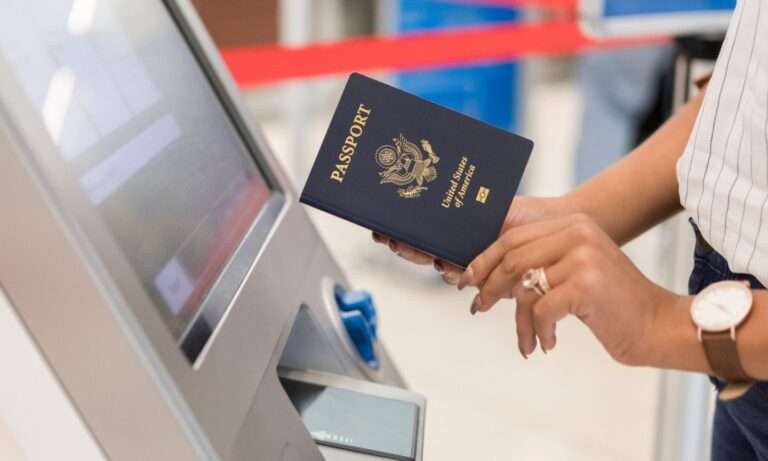Traveling to Europe is a dream for many, but what if you have a felony on your record? Navigating the complexities of international travel can be challenging, especially with a criminal history. In this blog post, we’ll dive into the ins and outs of traveling to Europe with a felony, exploring the potential hurdles, tips, and common questions you might have.
Understanding the Basics: Can You Travel to Europe with a Felony?
The first thing to know is that having a felony on your record doesn’t automatically bar you from traveling to Europe. However, the situation can be more complicated depending on the specific country you want to visit, the nature of your felony, and how long ago it occurred. Each country has its own set of entry requirements, so it’s essential to research and understand the rules for the specific destination you’re interested in.
Schengen Zone vs. Non-Schengen Countries
Europe is a mix of countries, with some belonging to the Schengen Area and others not. The Schengen Area comprises 27 European countries that have abolished border controls between them, making it easy to travel across multiple countries without multiple visas. However, if you have a felony, entering the Schengen Area might require extra preparation.
- Schengen Area: Countries like France, Germany, Italy, and Spain are part of the Schengen Area. Generally, these countries do not ask about criminal records on visa applications for short-term stays (up to 90 days). However, this doesn’t mean that they won’t check your criminal history at all. Some countries within the Schengen Zone may still refuse entry to individuals with a serious criminal record, especially if the felony is related to drug trafficking, terrorism, or other severe crimes.
- Non-Schengen Countries: The UK, Ireland, and some Eastern European countries are not part of the Schengen Area and have their own entry rules. For instance, the UK has strict entry rules, and having a felony might affect your ability to obtain a visa or be allowed entry.
Visa Requirements and Background Checks
When traveling to Europe, whether you need a visa depends on your nationality and the country you’re visiting. If you need a visa, you’ll typically have to fill out an application that might ask about your criminal history. Some countries, like the UK, explicitly ask about past convictions, while others may not.
Even if a country doesn’t require a visa for short stays, you might still be subject to background checks upon arrival. This can happen randomly or based on the discretion of the immigration officer. In rare cases, having a felony could result in being denied entry at the border, even if you’ve met all the visa requirements.
Felony Types That May Affect Your Travel Plans
Not all felonies are treated equally when it comes to international travel. The nature of your crime plays a significant role in whether you’ll face difficulties entering Europe. Here are some types of felonies that might raise red flags:
- Drug-related offenses: Many European countries have strict drug laws, and a conviction related to drug trafficking or possession might be taken seriously.
- Violent crimes: Convictions for assault, murder, or other violent crimes could lead to entry denial, especially in countries with stringent security measures.
- Sexual offenses: Crimes of a sexual nature are heavily scrutinized, and some countries may have specific bans on individuals with such convictions.
- Terrorism-related offenses: Felonies related to terrorism are likely to result in automatic entry denial in most European countries.
Tips for Traveling to Europe with a Felony
If you’re planning to travel to Europe with a felony on your record, here are some tips to help you navigate the process:
- Research the Country’s Entry Requirements: Start by researching the specific country you want to visit. Look into their visa requirements and whether they ask about criminal history.
- Consult an Immigration Attorney: If you’re unsure about your eligibility, consider consulting an immigration attorney who specializes in international travel. They can provide tailored advice based on your situation.
- Be Honest on Visa Applications: If you’re required to apply for a visa, be truthful about your criminal history. Lying on your application can lead to more significant issues if your record is discovered later.
- Gather Supporting Documents: If your felony was a long time ago or if you’ve taken steps to rehabilitate, gather documents that support your case. This could include letters of recommendation, proof of community service, or court documents showing your case has been closed.
- Prepare for Possible Questions: If you’re asked about your criminal history during your trip, be prepared to explain your situation calmly and clearly.
- Consider Alternative Destinations: If one country seems too difficult to enter due to your felony, consider visiting another European country with more lenient entry requirements.
Frequently Asked Questions About Traveling To Europe With A Felony
Can I be denied entry at the airport even if I have a visa?
Yes, immigration officers have the final say on who is allowed to enter a country. Even if you have a visa, you could be denied entry if they discover your felony or if they believe you pose a security risk.
Do all European countries conduct background checks?
Not all countries conduct thorough background checks on every traveler, but some do, especially if you’re applying for a long-term visa. It’s always better to assume that your criminal history could be checked.
Can I travel to Europe with a felony if my conviction was expunged?
If your felony has been expunged or sealed, it may not show up on background checks, and you might not be required to disclose it. However, laws vary by country, so it’s still a good idea to consult with a legal professional.
What if my felony was a long time ago?
The time that has passed since your conviction can play a role in whether it impacts your travel plans. Older convictions, especially if you’ve had no further legal issues, might be less of a concern.
Final Thoughts About Traveling To Europe With A Felony
Traveling to Europe with a felony on your record can be complicated, but it’s not impossible. With the right preparation and knowledge, you can still enjoy your European adventure. Always research your destination, be honest about your situation, and consider seeking legal advice if necessary.
Safe Travels!






